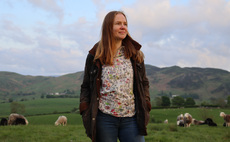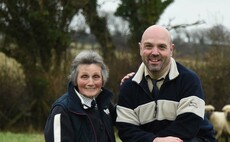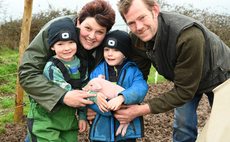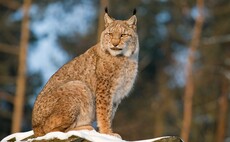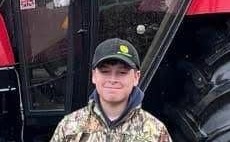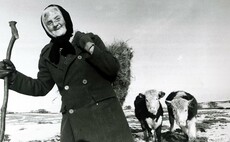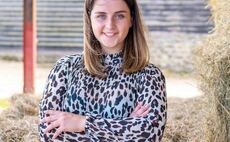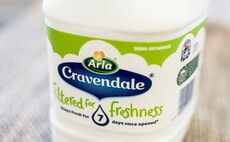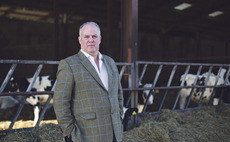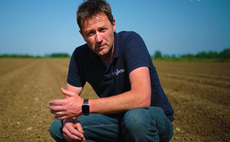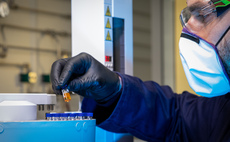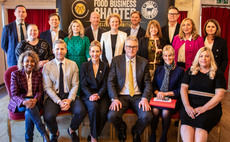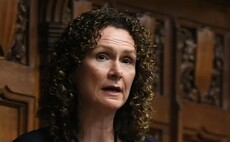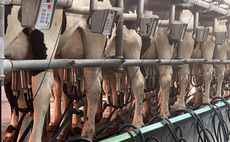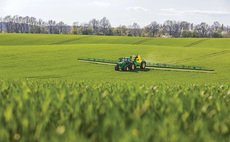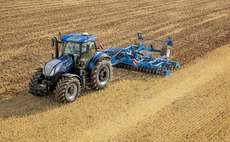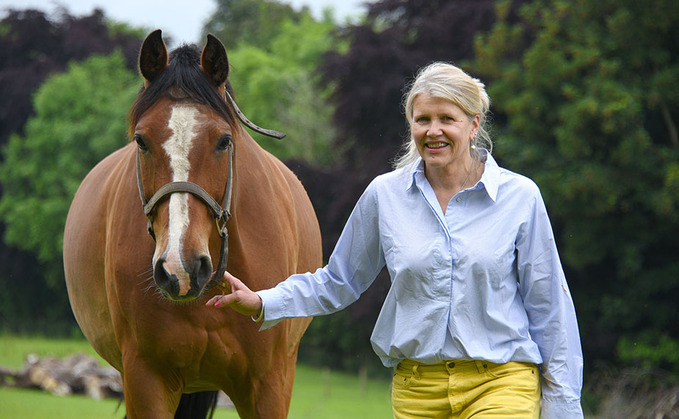
Wife of The Royal Welsh Show president, Davina Fetherstonhaugh is creating her own legacy by bringing her passion for sustainable farming to the forefront. Gaina Morgan meets her to find out more about her recent event, The Sustainable Livestock Conference.
Davina Fetherstonhaugh is using her high profile to launch a rallying cry to Government and to farmers, firmly believing that regenerative farming is part of the solution to many of the worlds environmental challenges. She is seeking a change in attitude on the ground and gathering support from politicians and opinion formers.
Wife of Harry Fetherstonhaugh, The Royal Welsh Show (RWAS) president, Davina put her best foot forward and with the support of RWAS, organised Da Byw, The Sustainable Livestock Farming Conference to pave the way for a rethink. Her mission is to demonstrate to farmers that changes in farming can significantly improve environmental and economic sustainability and to show Government that the right tools can incentivize and support change. She also passionate about the role livestock can play in regenerating soils and capturing carbon, while producing healthy nutritious food and yielding a better lifestyle.
The conference featured key industry players, politicians and environmentalists. It took place against the backdrop of the regenerative farming system her husband has introduced at their farm Coed Coch in north Wales.
Coed Coch is a 3,000-acre estate rising to 1,000 feet above sea level and commanding compelling views across from the Isle of Man to Snowdon and Cumbria. It comprises four tenant farms, 1,000 acres farmed in hand and woodland. It has been in Harrys family since the 16th century and she has shared his passion since they married thirty years ago.
Harry took on the in-hand land, initially as a tenant, at the age of 22 and was a driving force in the Royal Welsh Agricultural Society as Honorary Show Director for 25 years until 2019. Davina, originally from the Isle of Skye, has regularly competed on horseback at the Royal Welsh Show.
Davina feels strongly that, with agriculture exposed to so much disinformation, it gives her the opportunity to go further and highlight farmings vital environmental contribution.
She says: Seven years ago when Harry took on share farmers and started this regenerative farming, the children were growing up and I became more involved.
They started to bring home vegan friends and although I have nothing against veganism, I just know its not sustainable, because you have to have animals in the rotation and have done since time immemorial.
So, I knew I wanted to challenge them, I knew it wasnt right and I wanted to pass that message on. I researched it a bit and then lockdown came and I went on a course.
The 3LM course with Allan Savoury focused on regenerative farming and gave Davina the tools she felt she needed to properly challenge anti-animal arguments. This combined with the opportunity to enlist the support of the RWAS and the fact that Coed Coch is being farmed regeneratively prompted her to organize the conference.
The aim is to inform politicians and to inspire farmers with their example. Regeneration has boosted incomes and reduced stress at Coed Coch, while improving soil and dramatically reducing dependence on fossil fuels.
Seven years ago, Harry realised that, with the Single Farm Payment going and at his stage of life, it was time to rethink his farming system. He took on two farming partners, Rhys Williams and Emyr Jones, and restructured.
The high incidence of TB in the area was a factor in selling the cattle and the partnership introduced New Zealand bred Romneys. A hundred of a neighbours young dairy cattle also graze for six months from March to September.
The partnership has now developed a pedigree flock of Hauora Romneys, with the 3,000 ewes lambing outdoors in April and Lleyn cross lambs not kept as replacements finished on grass. A 15,000 investment in fencing, including electric, means the ewes and lambs rotationally graze three 20-acre blocks in a 60-acre field.
The stocking rate is up from 1,800 ewes and 300 ewe lambs to 2,300 ewes and 700 ewe lambs on the same ground.
The ewes out winter entirely on grass, also feeding on swedes, stubble turnips and silage. There is no bought in feed and fertilizer use has been reduced to three tonnes a year from fifty, along with substantially lower fuel costs. The lambing percentage is up 25 per cent up and, although there was no profit in the first two years of transition, six years on profits are significantly higher.
Davina says: Basically its common sense. We have sun, we have soil, we have grass and, we have photosynthesis. In short, the more photosynthesis, the healthier the soil. The healthier the soil, the healthier the grass and it then follows the healthier the animal.
Then Rhys Williams got more into the discipline of it. We started mob grazing, making the fields a lot smaller.
The system was known, but there wasnt a lot of research into it. We started looking into it more and realized it was a way, way healthier system of farming. It struck us that if you use the sun to grow the grass to the optimum and the animals to fertilise it and work it, youll get better grass.
Its almost obvious, but I did the course so that I would feel equipped to challenge people and tick the inevitable boxes. It also helped to get things straighter in our minds as a farm of how to be profitable, responsible and environmentally friendly.
One of the speakers at Da Byw was Davinas brother, Alasdair MacLeod, who farms in northern New South Wales. He was the first in the world to do a deal of this kind, to sell his carbon credits (to Microsoft) and has long introduced regenerative systems and over ten years increased the organic matter in his soils, and so carbon, by six per cent.
Davina attended last years COP26 Summit in Glasgow, where he was a speaker. She took part in an open mic session and was taken aback by the negative attitude towards the ability and will of farmers to address carbon sequestration and other environmental issues.
Other speakers at Da Byw included farmers who are farming regeneratively, academics and politicians. The former Home Secretary, Amber Rudd, chaired the afternoon discussion session.
The stated aim of Da Byw is to help policy makers support Welsh livestock farmers to move towards sustainable low input farming and reduce dependence on bought-in feed and fertilizers. Signposting included advice on building soil health and holistic grazing, as well as reducing the carbon footprint of food production, capturing carbon and working towards zero emissions.
It also brought together the science in terms of how to achieve Net Zero and why it is so necessary, as well as the finances and the rewards that healthy food and livestock can bring.
For Davina, it is a professional challenge to show what farming can contribute in terms of carbon sequestration and the environment. On a personal level, the initiative brings her life with Harry full circle she says one of the attractions for her as a young Londoner thirty years ago was that his life at Coed Coch was committed to giving back.
This year, the Royal Welsh Show is more eagerly anticipated than ever, the first in three years because of lockdown. Davina will be donning the hats and posh frocks that have become the RWAS First Ladys signature style, but, of course, she is also making her mark as an effective campaigner for change.




